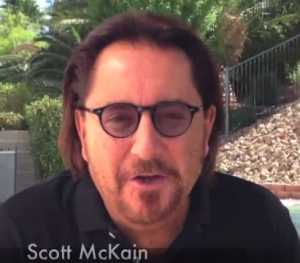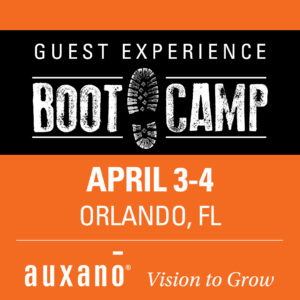Editor’s Note: During our August focus on Guest Experiences, we are honored to have some of the best voices in the world of Customer Experience provide guest posts for the Vision Room. As you read the content below, simply think “Guest” in terms of the “customer” the author is talking about – and you will benefit from the knowledge and expertise of these great minds.
How can we reward our customers for doing business with us — which will increase the likelihood that they will come back and do more business in the future?
You redirect their attention to an enhanced experience.
Think like a Hollywood director and re-shoot, re-cast, or re-edit your brand. These three steps could involve everything from your image, packaging, employees, and even your customers.
Here’s how:
Re-shoot
Maybe there’s nothing wrong with your product; perhaps all you need to do is revamp your image to attract a new audience. And sometimes, all that calls for is a reshoot of your products.
Motorola figured that out when they realized they should go beyond marketing themselves as nothing more than an electronic device but as a symbol for fashion and lifestyle. Now, to compete with the iPhone, Motorola is trying to convince you they aren’t just selling you a smartphone — instead, they are delivering an accessory that helps complete your overall look with everything from phone design to an add-on projector, and more.
Re-cast
Find approaches to “re-cast” your employees or customers in a manner that creates an enhanced customer experience. Look at your target customer and see how your business needs to change based on how your customer has changed.
We’ve seen Vegas do this by recasting themselves from the gambler who hits the buffet…to the “hip” person who hits the Strip, parties, shops, and makes memories that require making pacts that, “what happens in Vegas, stays in Vegas.”
Re-edit
How can you re-edit and enhance the experiences that your customers have to deliver them more “hands-on” time with your products and services?
Interactivity is one. (Yes, your customers can get “hands-on” time both virtually and physically.) Optimizing your distribution channels is another.
We all know someone who hates being the passenger. When they’re riding in the car with us, we can sense their foot pumping an imaginary brake. These people are used to being in control.
I believe many customers are experiencing a similar anxiety today. They, too, want to have their “hands on the wheel. Providing the customer with more authority and autonomy could be an important step to enhance the experience that our customer receives in this time of “show business.”
Great examples of interactivity today can be found in the video game industry, Pay-per-view movies and on-demand sporting events, Netflix, Hulu, and Amazon, and just about every television newscast that offers their viewers the opportunity to dial their “televote” line or connect via social media to register their opinion. The reason these work so brilliantly is that the interactive participant becomes an involved customer. And isn’t this a concept that we can acknowledge all started with show business?
This approach of prioritizing interactivity can also work on your own “show business.”
- The interactive customer becomes so emotionally involved and connected to the experience you provide that they become more than customers…they are loyal advocates of your brand who start promoting for you!
I know that we’ve been focusing on change a lot lately here at Distinction Nation. But one thing that has remained constant despite all the innovations and evolving business landscape: “word of mouth advertising” remains the most powerful form of marketing.
When you re-shoot, re-cast, or re-edit your product or service, you enhance the likelihood that your customers will be delivering great “word of mouth” for YOU!
> Read more from Scott.
Want to know more about Guest Experiences at your church? Let’s talk! Connect with an Auxano Navigator here.

Tags: Church Guest Experience, Create Distinction, Guest Experience, Scott McKain, Word of Mouth
|
What is MyVisionRoom? > | Back to Execution >
























